Photo: Alive Coverage
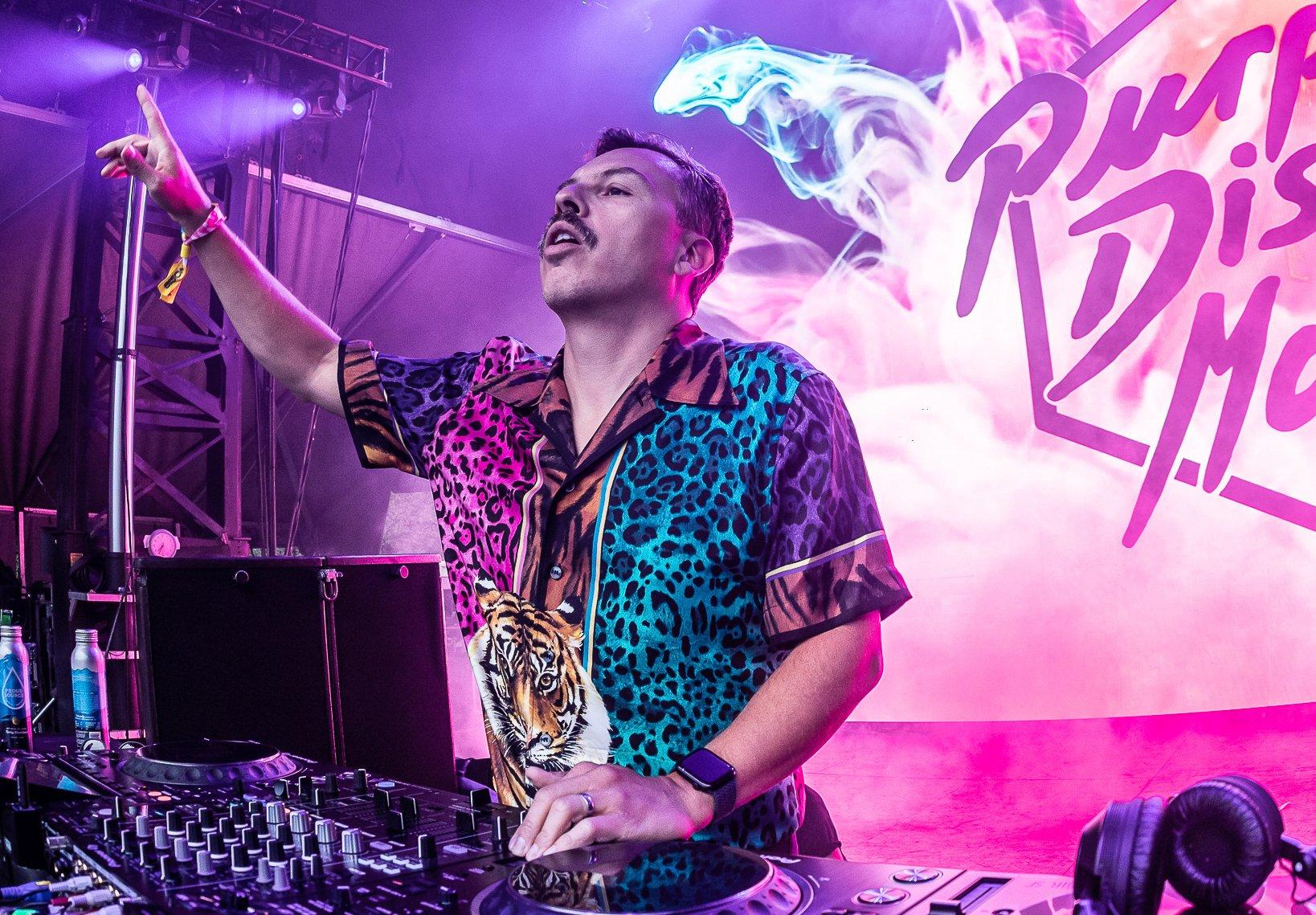
video
Watch Backstage Interviews At Outside Lands 2022: Phoebe Bridgers, Robert Glasper, TokiMonsta, Thuy & More
Outside Lands 2022 is a wrap, but we're still feeling its vibes. Immerse yourselves in the excitement with these exclusive interviews with the artists who performed.
Over 200,000 people got a pleasant break from "fogust" as brilliant sunshine warmed the site of Outside Lands in San Francisco's Golden Gate Park. Held Aug. 5-7, the three-day festival showcased hip-hop, dance music, rock and indie acts on six stages.
GRAMMY.com was there and spoke to many of the up-and-coming artists making their first appearance at the 15th annual event, as well as a couple of Outside Lands' headlining acts. Press play on the video interviews below to hear from Phoebe Bridgers, Robert Glasper and more.
Ashe
Major League DJz
Phoebe Bridgers
Sampa The Great
Purple Disco Machine
Thuy
Robert Glasper
TOKiMONSTA
Griff
HoneyLuv
Perel
Wet Leg
Visit the Recording Academy’s YouTube channel for more Outside Lands interviews and to go backstage at other festivals.

Photo: Chelsea Guglielmino
list
5 LGBTQIA+ Record Labels To Check Out: Get Better Records, So Fierce! And Others
During Pride Month and beyond, LGBTQIA+ owned and operated record labels are diligently working to provide queer artists a platform while providing more visibility for their communities.
Music is often a unifier — something that ties us together, allowing us to bond over our shared experiences. This is especially true among LGBTQIA+ communities. Whether you’re hearing MUNA’s pop songs crackle over speakers in a record store or finding ethereal deep-cut Ethel Cain demos on SoundCloud playlists, the queer community find an inevitable connection in the artists they seek out.
For decades, queer artists have cultivated hidden scenes in rave, techno and dance music. Today, a new generation of LGBTQIA+ artists are shaping contemporary pop, from Reneé Rapp and Towa Bird, to Chappell Roan and RYL0. However, we cannot acknowledge this mainstream resurgence of queer talent without reflecting on the limitations which hold back the wider music industry from becoming more accommodating to LGBTQIA+ artists.
A 2024 study from Queer Capita in partnership with Billboard revealed that 94 percent of music business participants feel that the industry fails to provide adequate resources or representation for the queer community. However, there's a severe lack of data on the number and scope of queer-specific record labels (those that are LGBTQIA+ owned, run or whose rosters reflect that demographic) — a shocking shortfall considering how queerness shapes the music industry financially. A 2022 "The Power of LGBTQ+ Music" report by Luminate revealed that, queer fans spend an average of 20 percent more on merch and, generally, spend $72 more on music than the general public.
Read more: 15 LGBTQIA+ Artists Performing At 2024 Summer Festivals
Queer music is profitable and shaping listening trends. Although LGBTQIA+ acts are eagerly supported, — and major labels seem to be taking steps to increase queer representation on a corporate level and on their rosters — the wider industry must continue to support the indies and queer imprint labels that are fighting to survive.
These queer indie record labels are not only highlighting LGBTQIA+ artists and creating accessible, accommodating spaces, but they're often doubling down on the importance of visibility. As an artist or employee, it wouldn’t hurt if your boss (label manager, record executive, press assistant, etc) was queer too, right? This integration and inclusivity is essential when building equitable infrastructure in music.
So, now with Pride Month upon us, there’s been no better time to reflect on the vital resource that LGBTQIA+ labels provide and the ways they encourage our industry to do and be better. These labels are much more than champions of queer talent; they’re signifiers of independent ethos and resilience that keeps music communities thriving.
From the late-night voguing parties in Shanghai that inspired Medusa Records to the against-the-grain roster of Saddest Factory Records, here are five global LGBTQIA+ record labels showcasing the necessity and irreplaceable talent of queer creatives.
Get Better Records
Location: Philadelphia, Pennsylvania
Artists to know: Alice Bag Band, La Dispute, Victoria Park, ZORA
Get Better Records has been around since 2009 and, over its 15 years, has become one of the most notable queer and trans-owned labels. Get Better was formed by Control Top drummer Alex Lichtenauer and their friend Nick King, though the label is now solely run by Lichtenauer. Get Better's roster platforms punk, alternative, experimental and hardcore acts.
Whether you’re looking for the intimate sound of Suzie True, the queer hardcore attitude of Baltimore newcomers No Doubt or want to experience the reverie of how Bacchae are twisting underground DC punk into their own boot-stomping beat, Get Better Records has become a hotspot for innovative acts bringing their distinct style to the music industry.
A proudly self-described “queer and trans owned” record label with a simple motto — inspiring everyone to practice and play. Through their committed gritty spirit, Get Better Records is summative of what we hope to see for all LGBTQIA+ artists: unconditional acceptance of their experiences and art.
Saddest Factory Records
Location: Los Angeles, California
Artists to know: MUNA, Charlie Hickey, Claud, Sloppy Jane
While technically an imprint of Dead Oceans (the label Phoebe Bridgers is signed to), the arrival of her Saddest Factory Records was a welcomed one. Founded in 2020, Saddest Factory Records emerged off the back of Bridgers’ ongoing success as a cult fan favorite and served as an important reminder — the best creative decisions for LGBTQIA+ artists do, in fact, come from our own community.
Saddest Factor's roster features a queer-charged collection of artists who deserve more eyes and ears. If you’ve not already here for queer fandom faves Claud, MUNA, or Sloppy Jane, you’ve got some work to do this Pride Month!
So Fierce
Location: Toronto, Canada
Artists to know: Oceane Aqua-Black, Gisèle Lullaby, Jay Light
Founded by musician Velvet Code during the pandemic in 2020, So Fierce wears its pride on its sleeve — by name and artist roster. This inclusive music company pulls together a diverse mix of LGBTQIA+ talent, from drag queens to pop singers, and proves there’s space for all types of queer representation.
With over 20 years of experience producing for big names like Venus, Icesis Couture and Lady Gaga, Velvet Code has cultivated a space that gives LGBTQIA+ artists a platform to belong. Their roster includes names like Icesis Couture, season 2 winner of Canada’s "RuPaul’s Drag Race," and Miami-based singer/songwriter Deity Jane.
Medusa Records
Location: Shanghai, China
Artists to know: Enema Stone, Michael Cignarale
Based in Shanghai city, a monthly queer club night transformed from a queer-friendly communal space to something much bigger. These unforgettable eccentric Medusa parties hosted – filled with voguing, queens and pounding psytrance music – became pivotal underground expressions of Shanghai’s LGBTQIA+ nightlife.
As Medusa Records, founders Michael Cignarale and Sam “Mau Mau" wanted to emulate the ecstasy of queer, unapologetic existence. "The label will channel Medusa’s sweaty midnight moments into a distinctive voice, embodied by musical and multimedia collaborations,” they said in a press release. Through the label, they hoped "to connect the emerging Chinese queer community with a global audience."
Medusa Records works with local and international DJs, VJs, producers, vocalists, visual artists and others. Their roster features the wonderfully queer, camp and colorful stylings of resident drag performer and musician Enema Stone, as well as DJ Michael Cignarale.
Outside their label, Medusa continues to give back during their sweaty, glitter-doused parties, where they host guest DJs and performers such as the Carry Nation, Chris Cruse, Octo Octa, Eris Drew, Nick Monaco, Chrissy, Jeffery Sfire, and Boris.
Whether you’re attending an IRL club night or cruising their online presence, Medusa Records know how to keep the beat going – and you’ll feel like you’re caught up in a never-ending party.
Boudicca
Location: London, United Kingdom
Artists to know: Samantha Togni, Wallis
If music labels and party hybrids are your thing, Boudicca may be your next favorite destination.
Starting out as a queer club night in 2019, Boudicca was founded by producer and DJ Samantha Togni and quickly became a hot spot for queer techno lovers. Now, the London-based party platform and record label is all about hitting high BPMs, championing hedonistic electronica, and giving space to under-the-radar non-binary, womxn and trans musicians.
Regularly hosting or collaborating in queer club nights and DJ sets, Boudicca’s roster pushes electronica to its limits. The label has released a series of exhilarating crossover compilations: Pure Bones, Dreams That I Can't Quite Remember, and Dark As It Gets, each of which features game-changing acts such as Rotterdam-based duo Animistic Beliefs — who blend global club music, techno and IDM — to Peachlyfe, an incredible "hydra-sonic" non-binary musician.
Listen To GRAMMY.com's 2024 Pride Month Playlist Of Rising LGBTQIA+ Artists
Celebrate Pride Month

5 LGBTQIA+ Record Labels To Check Out: Get Better Records, So Fierce! And Others
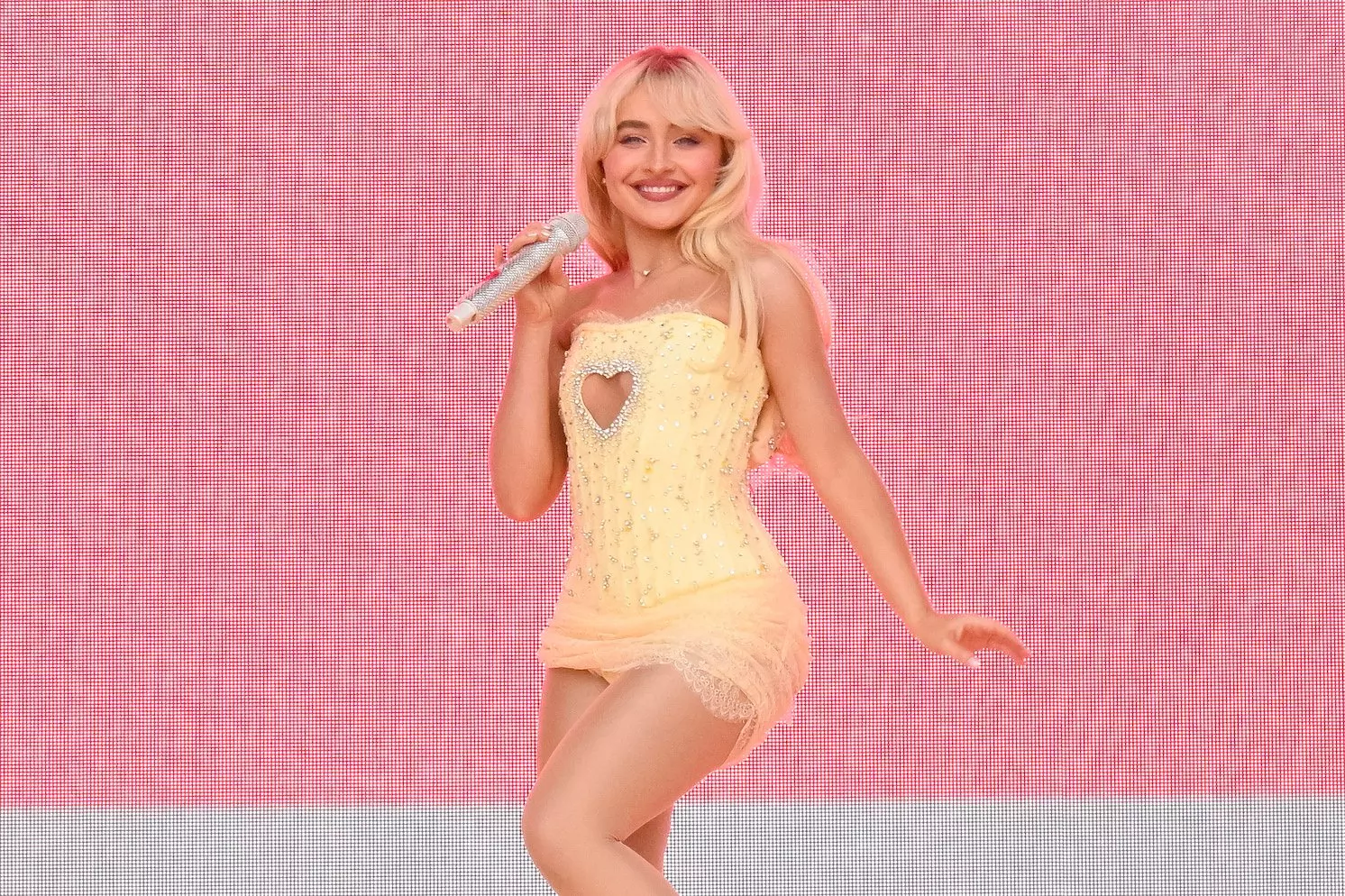
9 New Pride Anthems For 2024: Sabrina Carpenter's "Espresso," Chappell Roan's "Casual" & More
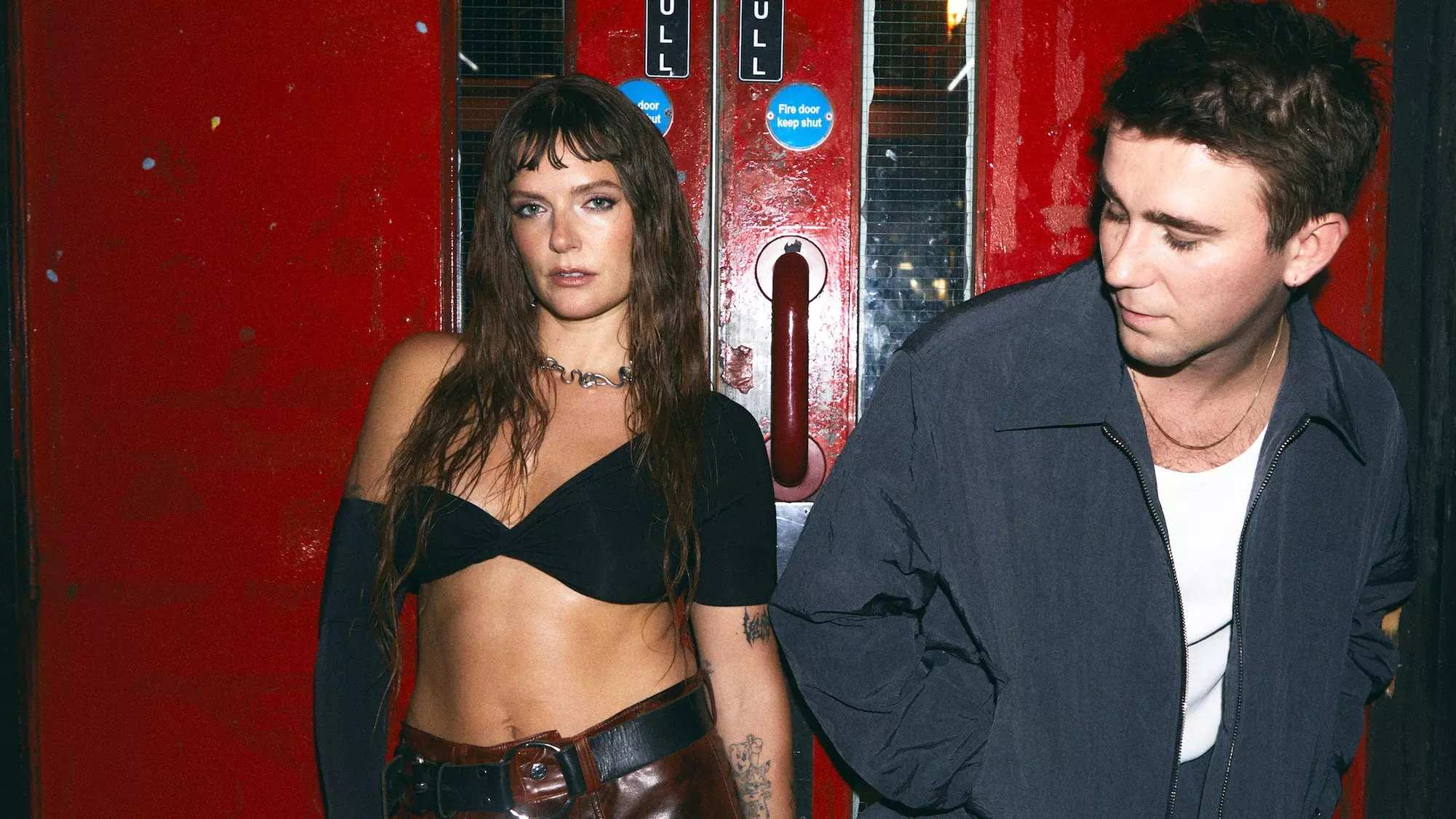
Tove Lo & SG Lewis Crafted Sweaty New EP 'HEAT' In Celebration Of Their Queer Fans
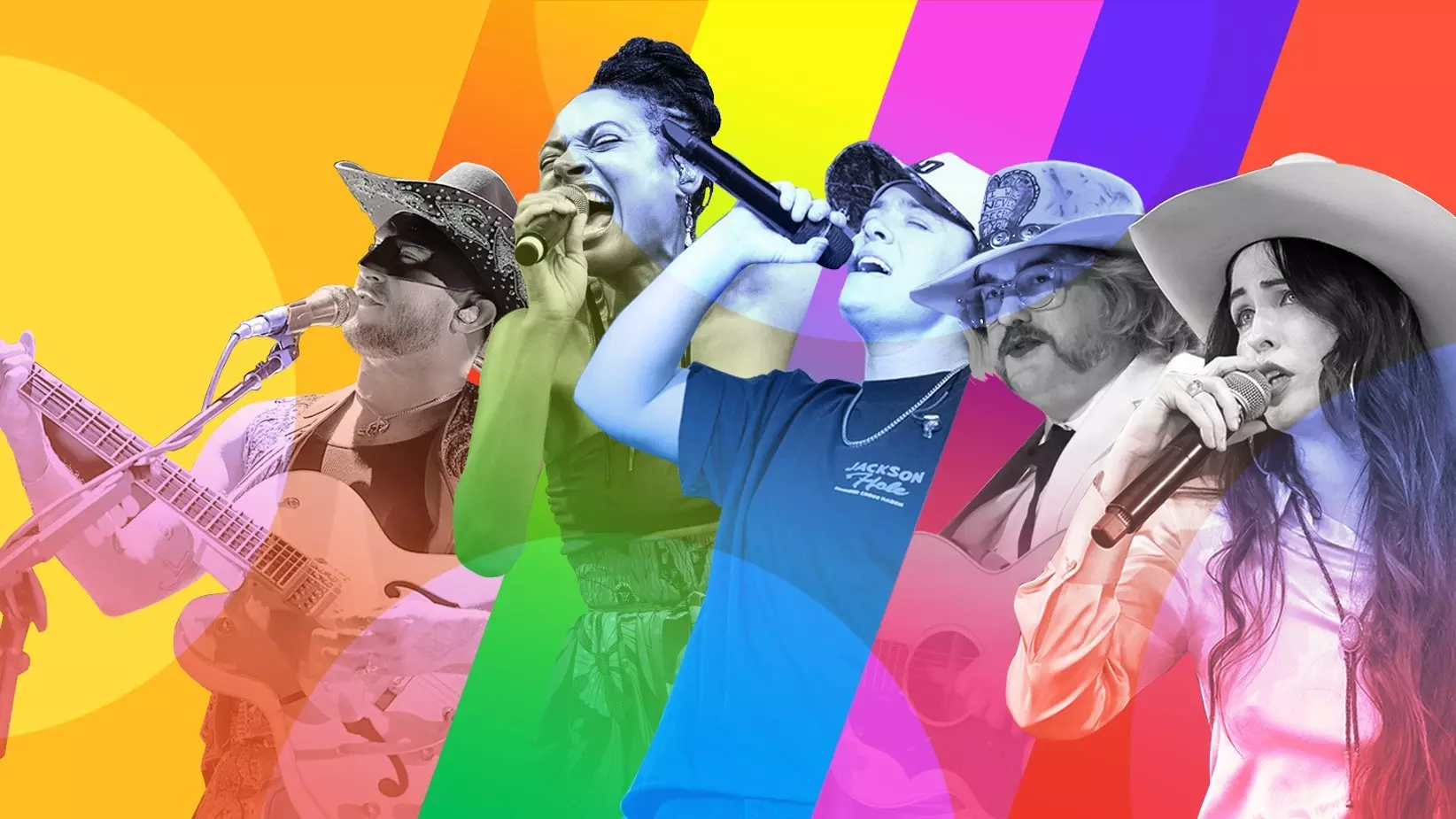
How Queer Country Artists Are Creating Space For Inclusive Stories In The Genre
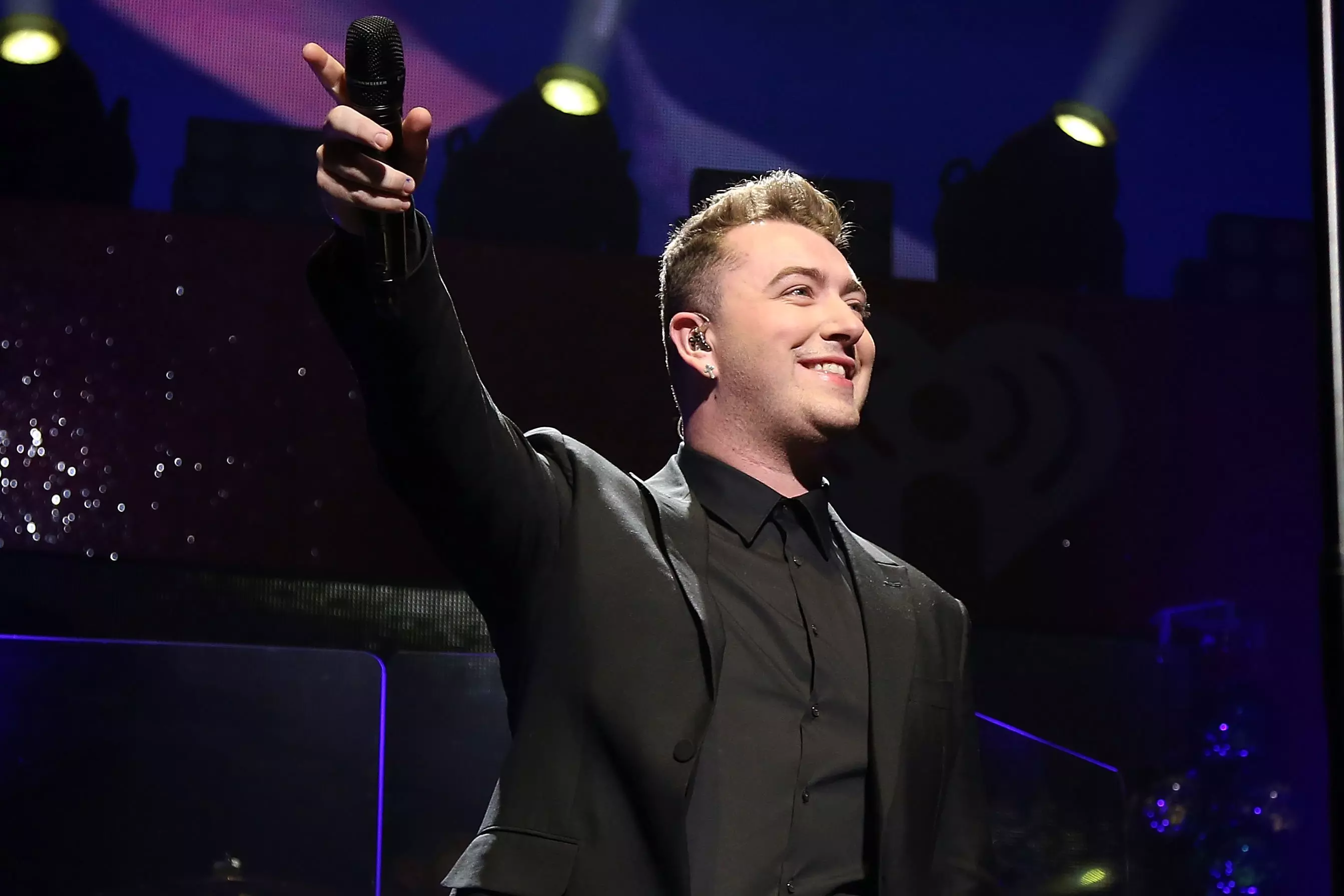
How Sam Smith's 'In The Lonely Hour' Became An LGBTQIA+ Trailblazer
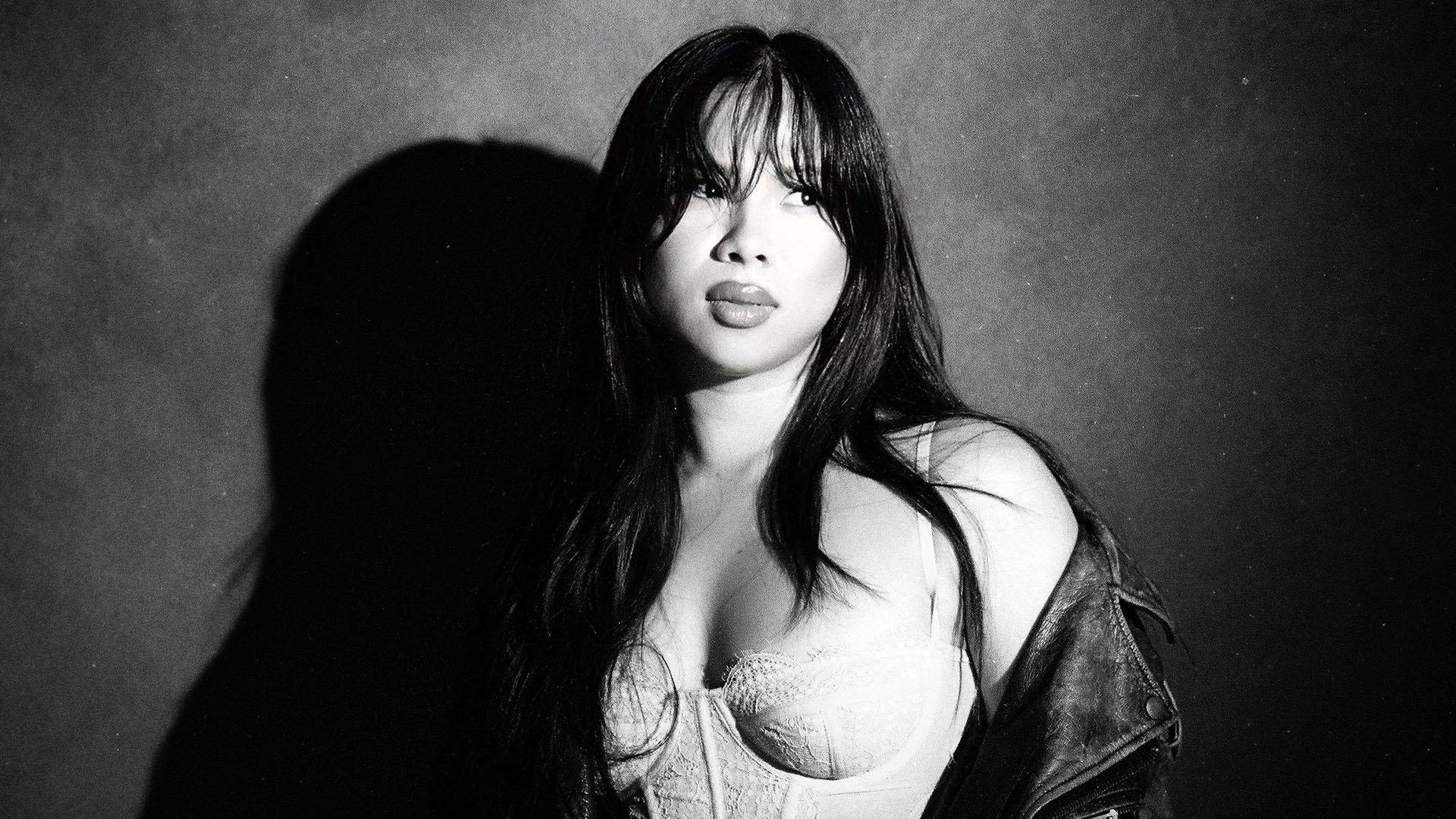
Photo: Brandon Lee Davis
video
It Goes To 11: Thuy Reveals The In-Ear Monitors That Have Become Her Guiding Light On Stage
At every performance, there is one item that Vietnamese singer Thuy must have: her UE Live in-ear monitors. They allow her to hear everything — most importantly, her fans.
When Vietnamese singer Thuy hits the stage every night, she has one item that can instantly calm her nerves and ensure a smooth performance: her Ultimate Ears Live monitors.
"They're my everything," she explains in this episode of It Goes to 11. "When I can't hear, I don't do a good job."
Thuy considers the UE Live monitors one of "the best in the game" because of their crisp quality — she can hear her voice and the instrumentals through any frequency. And she can chat with her band through them, which may be her favorite part: "Sometimes, we'll have banter and a little morale during the show."
The UE Live monitors also have face plate customization, so she likes to switch them to match whatever outfit she's wearing that evening. One day, she hopes to have a personalized plate of her dog to feel his presence even when he's not there.
And most importantly, Thuy can still feel the audience with her UE Lives. "You're almost in your own world. With other ears, you feel like you can't connect with fans, but with these, I can hear them," she reveals.
Press play on the video above to learn more about Thuy's beloved UE Live in-ear monitors, and check back to GRAMMY.com for more new episodes of It Goes to 11.

Photo: Jeff Kravitz/FilmMagic
video
GRAMMY Rewind: Kendrick Lamar Honors Hip-Hop's Greats While Accepting Best Rap Album GRAMMY For 'To Pimp a Butterfly' In 2016
Upon winning the GRAMMY for Best Rap Album for 'To Pimp a Butterfly,' Kendrick Lamar thanked those that helped him get to the stage, and the artists that blazed the trail for him.
Updated Friday Oct. 13, 2023 to include info about Kendrick Lamar's most recent GRAMMY wins, as of the 2023 GRAMMYs.
A GRAMMY veteran these days, Kendrick Lamar has won 17 GRAMMYs and has received 47 GRAMMY nominations overall. A sizable chunk of his trophies came from the 58th annual GRAMMY Awards in 2016, when he walked away with five — including his first-ever win in the Best Rap Album category.
This installment of GRAMMY Rewind turns back the clock to 2016, revisiting Lamar's acceptance speech upon winning Best Rap Album for To Pimp A Butterfly. Though Lamar was alone on stage, he made it clear that he wouldn't be at the top of his game without the help of a broad support system.
"First off, all glory to God, that's for sure," he said, kicking off a speech that went on to thank his parents, who he described as his "those who gave me the responsibility of knowing, of accepting the good with the bad."
Looking for more GRAMMYs news? The 2024 GRAMMY nominations are here!
He also extended his love and gratitude to his fiancée, Whitney Alford, and shouted out his Top Dawg Entertainment labelmates. Lamar specifically praised Top Dawg's CEO, Anthony Tiffith, for finding and developing raw talent that might not otherwise get the chance to pursue their musical dreams.
"We'd never forget that: Taking these kids out of the projects, out of Compton, and putting them right here on this stage, to be the best that they can be," Lamar — a Compton native himself — continued, leading into an impassioned conclusion spotlighting some of the cornerstone rap albums that came before To Pimp a Butterfly.
"Hip-hop. Ice Cube. This is for hip-hop," he said. "This is for Snoop Dogg, Doggystyle. This is for Illmatic, this is for Nas. We will live forever. Believe that."
To Pimp a Butterfly singles "Alright" and "These Walls" earned Lamar three more GRAMMYs that night, the former winning Best Rap Performance and Best Rap Song and the latter taking Best Rap/Sung Collaboration (the song features Bilal, Anna Wise and Thundercat). He also won Best Music Video for the remix of Taylor Swift's "Bad Blood."
Lamar has since won Best Rap Album two more times, taking home the golden gramophone in 2018 for his blockbuster LP DAMN., and in 2023 for his bold fifth album, Mr. Morale & the Big Steppers.
Watch Lamar's full acceptance speech above, and check back at GRAMMY.com every Friday for more GRAMMY Rewind episodes.
10 Essential Facts To Know About GRAMMY-Winning Rapper J. Cole
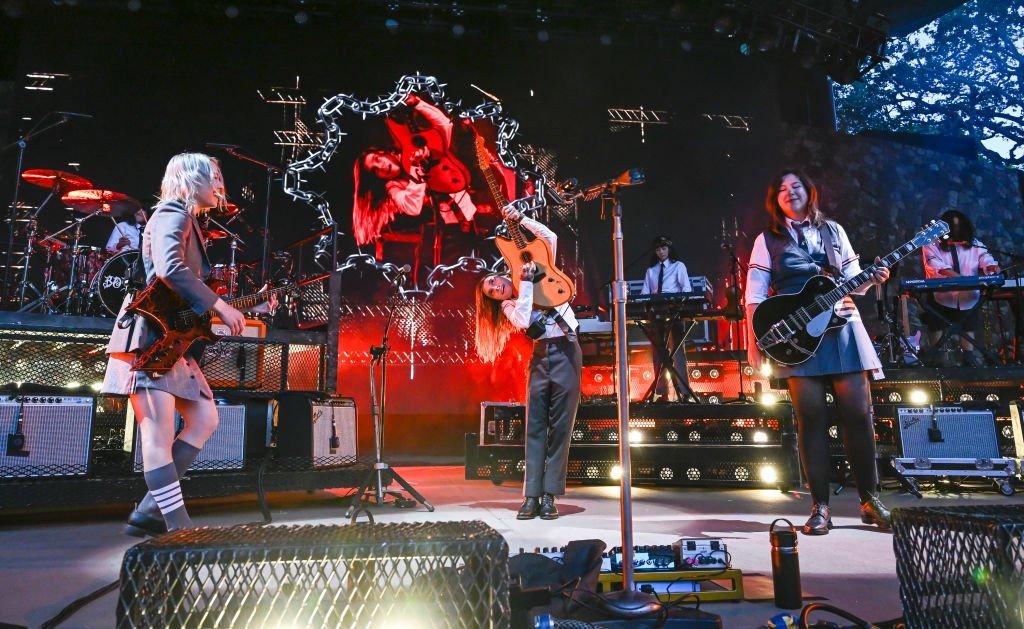
Photo: Steve Jennings/Getty Images
interview
The Sound Of Collision: Boygenius Discuss Creating 'The Rest,' Their Deepening Friendship & Identities
Boygenius have experienced a year of exponential growth, culminating with a new EP. In a candid and wide-ranging interview, Julien Baker, Phoebe Bridgers, and Lucy Dacus discuss five years of music-making and 'the rest,' which drops Oct.13.
Quite a lot has changed for boygenius in the months following the release of their debut album, the record, in March.
The indie supergroup of Julien Baker, Phoebe Bridgers, and Lucy Dacus initially joined forces in 2018, offering a self-titled EP and North American tour. Despite positive reception for both, the trio were largely quiet for several years and shifted to their solo projects.
So when their reunion and debut full-length was confirmed in January 2023, much attention was given to boygenius' trajectory. Once the record was released, the group seemingly went skyward.
Fast forward to the present and the band is on the third leg of their tour in support of the record, recently performing for 25,000 people at Gunnersbury Park in London and selling out Madison Square Garden. Continuing their exponential growth, boygenius recently announced the rest, a four-track EP set for release Oct.13.
Sonically, the rest is a revisitation. "We veered away from our folkier roots on the record in a way that was fun to come back to for the EP," says Bridgers sitting alongside Baker and Dacus on a Zoom call from the Westville Music Bowl in New Haven, Connecticut.
Even deeper rooted than their love of folk music, and what has remained consistent throughout the five years after their initial connection, is the trio's shared dynamic.
"We were never not a band," says Bridgers. Yet, "it doesn’t just mean that we’re all great musicians and therefore our talent gets exponentially multiplied," Baker says of their "supergroup" designation. "It’s the dedication to how we mediate music between the three of us as a conduit. That’s the important part."
Their impact and connection extends beyond music as well. The trio has moved into other forms of media, producing a music film directed by Academy Award nominee Kristen Stewart, and have become icons for the queer community after performing in drag in Nashville to protest the city’s anti-drag legislation (among other pro-queer activities).
Ahead of their new EP, boygenius candidly dive into their songwriting process, relationships with queerness, and using music as a conduit of their connection.
This interview has been edited for clarity.
When you think back on who you were professionally and personally when you wrote the first EP, what is it like to bring those songs into the present on much bigger stages?
Phoebe Bridgers: I think about it more from a fan perspective now. I’m like The kids are singing it to me. They get excited when we play older songs 'cause they feel a part of it.
Julien Baker: It's sweet imagining them having anticipated it. Having been at that [older] show or missed that show. We’ve aged with them and they can trace our parallel aging.
Bridgers: When we play "Me & My Dog," I was singing about myself and from my perspective. Now I’m so far away from it that it’s like the fans are singing it. I feel that way about "Souvenir." This is one for the fans to sing to us.
How did you view yourselves at the start of the group in 2018, and how does that compare to you are today?
Lucy Dacus: I’m a bigger fan of who I am now than who I was, but you gotta root for yourself, so I’m retroactively rooting for who I was.
Baker: I have more grace for my past self. I don’t know if I would have the wisdom to admire current me… think overall I’d be stoked. Some of the stuff [I've done] would surprise me.
Bridgers: We talk sometimes about how there’s a certain hometown mentality that can be poisonous. Like your friend whose band never took off says, “You guys f—ing sold out,” and we’re like “Well you didn’t get a chance to my friend. 'Sold out' means people buy the album.”
Baker: In 2018 when I met you guys I was straight edge and vegan and now it’s nice to have a lobster roll when you’re in New England. I’m a lot more lax but more mature and I don’t know if I would have had the foresight as such a young kid. I was so neurotic then and really principled in a misguided way, but I think I have to have retroactive grace for that person more than I need to admire.
You’ve mentioned that much of the writing for boygenius takes place separately, but the songs are finished together. How did writing the record compare to the first EP?
Bridgers: The main way is that we talk about each other now. We were just writing, trying to help each other with songs that already existed or little ideas that already existed. Now we have so much context for each other that the record starts eating its own tail and becomes about making the record, which is cool.
Baker: There’s an ease of communication that maybe wasn’t quite available when we were first working together, where each of us brought a verse that then got gently edited.
A lot of the record is an exquisite corpse of working out line by line with each other. Then there are huge swaths that are just s— [Phoebe] wrote or just s— that Lucy wrote, but it’s nice to feel an entitlement to something that’s being created corporately instead of pieced [together].
Dacus: It’s never been difficult [communicating], so it’s not like it even had the chance to get easier. We do a lot of work to avoid difficulty. We do group therapy together and try to foresee what our pitfalls could be and avoid them.
Not like it’s all easy. We’ll encounter really difficult math problems — [that’s] what it feels like in the studio where none of us will get it and we’ll be frustrated but it’s not at each other.
The final lines of "Powers" are "The force of our impact, the fission/The hum of our contact/The sound of our collision." From my perspective, the sound of your collision as human beings includes the music you’ve made together, but also the way you’ve presented yourselves to the public, for example, in standing up for causes you believe in, and then there is the sound no one else hears within your dynamic as a band. With all this mind, how would you describe "the sound of your collision?"
Baker: Those are both semi-stolen lyrics. I read this book Cruising Utopia by José Esteban Muñoz and he talks about the idea of the lived experience being its own work of art, and then that art needing a witness to be savored and appreciated.
He talks about the hum of our contact. It’s evocative of all the things that aren’t explicitly stated that take place. All the communication that’s extra-lingual. That is witnessed only in time and action and accrued over years and years. It’s so incremental that you can barely observe it as it's happening. Then you look back and realize that you’ve spent your life with people that have become like your family and they’ve been the driving force in what motivates you. It’s small and daily and powerful.
So the album and all the other things you guys have done together are all the particles accruing?
Dacus: It’s just a gradual deepening all the time. I think that the closeness has been a pleasant surprise for all of us. Now that we’ve discovered it, we want to interact with it and protect it however we can. Originally it was just a fun lightweight idea. Now it’s my whole life.
Baker: There’s the real face-to-face friendship that we have, but we’ve always been making music together. It feels very much like music is the water that you’re swimming in. Music is the language that you’re speaking.
**The album artwork on the rest is in many ways the counterpart to the record, which feels very hopeful with the three of you looking towards the horizon like a team of superheroes. Whereas on the EP cover, the surroundings are dark, your faces are darkened, and you’re huddled together for support. Through that lens, how would you compare the two releases?**
Dacus: That photo was taken during the same shoot for the original album art. We always liked the image, but when we chose these four songs to put out together, they all have this spacey, eerie quality about them. I think the wind being in our hair, the natural elements messing us up, it’s a little more unsettling and I feel like these songs — I don’t think they lack optimism, but they’re a little more focused on fear and unsteadiness.
Bridgers: We had wanted it to be a different time of day in the photo. The back of the EP is dusk at the beach. Not a very hidden meaning in that.
You three have been celebrated very much of late for standing up for the queer community, trans community, and other marginalized communities, but you’ve also stated that doing so doesn’t necessarily make you “role models.” How has the time you’ve spent together as a band affected your relationship with your own queerness?
Dacus: I’m definitely gayer because of these guys. [All laugh.]
Baker: That’s true! And I’m straighter somehow.
Bridgers: I was thinking that it makes me feel straighter to be around a bunch of gay people all the time. Like when I’m with only straight people.
Baker: You’re the gayest one.
Bridgers: I’m so gay and when I’m around gay people I’m like, damn. But that doesn’t hold true all the time.
Dacus: A serious answer would be that my favorite thing about queerness is how undefined it actually is. Having less allegiance to who I was, being willing to betray my idea of myself in service of what actually feels best and is most honest to the moment at hand — that’s a skill that I think I’ve been getting better at through my life. Not in small part to the people who love me and will accept me at any point of understanding myself, and these guys are included in that.
Baker: It’s like finding a new vernacular around queerness. It’s how you carry out the outfit, or it's how you carry out dancing, or it’s how you carry out some sort of body language that determines whether it’s queer. Not what the action is. It’s how you employ, and I think being around people who see the core static parts of myself …makes me feel more secure to play with the mutable parts of my identity.
Referring to what Julien said earlier about the lived experience being a work of art that needs a witness, how have you served as witnesses for each other? How has your lived experience with queerness influenced your art?
Baker: Queerness is inherently creative. Queerness exists in opposition to a standard. Not to replace it with a superior thing, but to dismantle a dominant prevailing view of how things should be just because that’s how they’re traditionally understood.
Queerness involves creating a different future for yourself. Imagining yourself towards a different embodiment of you. An embodiment of you that isn’t naturally going to be fomented any other place than by these guys or by your community or by the community you construct.
Dacus: Julien has a banjo that she drew on and has “queer joy” on it, and I think that queerness and joy are inextricable themes. Why be queer if you aren’t trying your very best to access more joy in your life or more authenticity?
So it’s actually amazing to realize I’m living in it so thoroughly now that I don’t actively think about it as much because it’s a part of everything that I do to the point where I don’t even see it sometimes, which is such a privilege.
In listening to “Without you, without them” I get the impression you guys are telling each other to share everything, so I ask a version of the question that’s posed in the final line of the song: after years of growing together, who would you guys be without each other?
Bridgers: Worse
Dacus: Impossible to know.
[All laugh]
Dacus: The idea of it from here feels really lonely. But it’s also weird to think [about] who would I have cared deeply about or who haven’t I met yet that [would be] as important as these people. Life is so various, and no matter how much you prepare for it it always will catch you off guard in sometimes the best ways.
Bridgers: I think if we had individually gotten more famous and then made friends even with each other from this point of view, it would be great, but I feel lucky that we met when we did. We were all on the same plain with a dream of selling out a 2000-capacity venue. Laying awake at night thinking about it as the end goal.
So it's weird that I met two people with as close to the same life experience as possible and then it changed into another version of as close as possible. We all come from an indie space. We all are queer. It would be s—y to have nobody that was in my shoes around me.
Baker: Y’all have been additional rudders in my trajectory since we met, and I have no way of knowing — nor do I care to know — how my character would differ if I didn’t have y’all as a whetstone of sharpening my own wit and honesty and musical practice.
Say She She's Big Year: How The NYC Disco Funk Group Made Sure The World Wouldn't Forget Them
